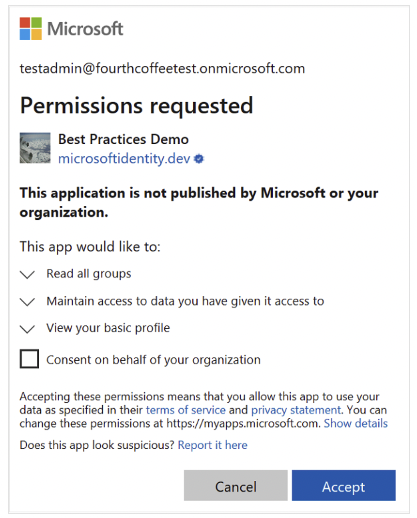- Learn with Cisco at Cisco Live 2025 in San Diego
- This Eufy robot vacuum has a built-in handheld vac - and just hit its lowest price
- I highly recommend this Lenovo laptop, and it's nearly 50% off
- Disney+ and Hulu now offer prizes, freebies, and other perks to keep you subscribed
- This new YouTube Shorts feature lets you circle to search videos more easily
Microsoft’s Verified Publisher Status Abused in Email Theft Campaign

Microsoft and cybersecurity firm Proofpoint on Tuesday warned organizations that use cloud services about a recent campaign that involved malicious OAuth applications and abuse of Microsoft’s ‘verified publisher’ status.
The campaign mainly targeted Microsoft customers in Ireland and the UK. The tech giant has taken steps to disrupt the operation and it has published an article on how users can protect against these threats, which the company calls ‘consent phishing’.
In a consent phishing attack, a threat actor attempts to trick a targeted user into granting permissions to their malicious cloud applications. Once they have obtained the required permissions, the malicious apps can gain access to legitimate cloud services and user data.
In a campaign uncovered by Proofpoint in December 2022, hackers created malicious OAuth apps and then obtained a ‘verified publisher’ status in an effort to increase their chances of tricking users.
According to Microsoft, the attackers impersonated legitimate companies when enrolling in the Microsoft Cloud Partner Program (MCPP).
“The actor used fraudulent partner accounts to add a verified publisher to OAuth app registrations they created in Azure AD,” Microsoft explained.
This made it more likely for targeted users to grant permissions to the malicious applications. These permissions included reading emails, changing email settings, and accessing files and other user data, such as calendar and meeting information.
Microsoft’s investigation showed that the attackers used the malicious OAuth applications to exfiltrate emails.
According to Proofpoint, the attackers used three malicious apps created by three different publishers. They all used the same malicious infrastructure and targeted the same organizations.
“The potential impact to organizations includes compromised user accounts, data exfiltration, brand abuse of impersonated organizations, business email compromise (BEC) fraud, and mailbox abuse,” Proofpoint said. “The attack was less likely to be detected than traditional targeted phishing or brute force attacks. Organizations typically have weaker defense-in-depth controls against threat actors using verified OAuth apps.”
According to Proofpoint, the campaign ran until December 27. The security firm observed attacks against financial and marketing staff, as well as executives and managers.
Microsoft said it became aware of the campaign on December 15. The company has disabled all fraudulent applications and alerted affected customers.
Microsoft recently also dismantled a campaign that leveraged a network of single-tenant OAuth applications for the distribution of spam.
Related: GitHub Warns of Private Repositories Downloaded Using Stolen OAuth Tokens
Related: CircleCI Hacked via Malware on Employee Laptop
Related: Okta Source Code Stolen by Hackers

